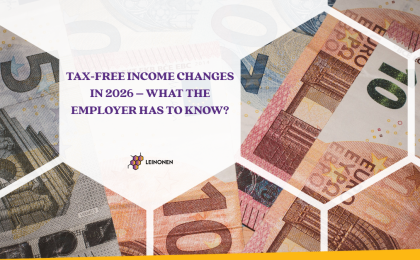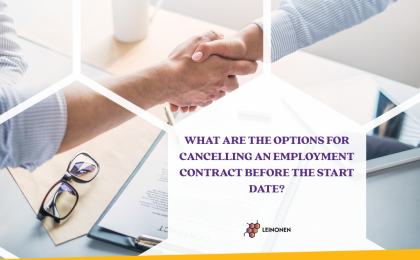Taxpayers know that everything which is not a service is goods. However, things get complicated when we’re dealing with something that does not fall into either category. Not goods, not a service.
Subsection 4 (1) of the Value Added Tax Act stipulates that turnover means the provision of services in the course of business activities and self-supply of services. The provision of several different services at the same time is also turnover of services. For example, giving goods on operating lease, whereby the lessor also receives interest in addition to the lease payments and this is separately highlighted in the agreement, is regarded as the provision of two different services at the same time: the service of giving goods on lease (the lease payment is the price of this service) and the financial service related to the lease transaction (the interest is the price of this service). Whet must be kept in mind here is that the turnover of the service of giving goods on lease is subject to 20% VAT whilst the turnover of the financial service related to the lease transaction is tax exempt, as a rule, even though this service can also be taxed by notifying the tax authority of this in advance. If the payment of interest is not separately mentioned in the agreement and the lessee is only billed for the lease payments (which also contain the part of the fee payable by the lessee that is called interest in other agreements), the service only constitutes giving goods on lease and the total price of the service is always subject to VAT.
Returning to the definition of ‘service’, it is good to know about the important judgments made by the European Court of Justice which specify what must be regarded as the provision of a service for a fee for the purposes of the sixth directive (today, the VAT Directive 112/2006/EC). For example, in Case No C-102/86, the European Court of Justice ruled that a transaction can be regarded as the provision of a service for a fee only if there is a direct link between the provided service and the fee payable to the service provider.
The exact definition of a service is given in clause 2 (3) 3) of the Value Added Tax Act: “services” means the provision, in the course of business activities, of benefits or the transfer of rights, including securities, which are not goods according to clause 1) of the same subsection, and obligations to refrain from economic activity, to waive the exercise of a right or to tolerate a situation for a charge. Software and information transmitted by electronic means, and data media carrying software or information that are especially compiled or adjusted according to the purchaser’s specifications are also services.
The judgment made by the European Court of Justice in Case No C-215/94 is remarkable: discontinuation of milk production in the case where compensation is received from this from the state cannot be regarded as refraining from economic activity for a fee and is therefore the provision of a service, as the state does not receive any benefits when a farmer discontinues milk production.
Therefore, in order to decide whether or not a transaction is a service, it is necessary to answer the question of whether or not the other party receives any benefits from the transaction.
What must be kept in mind is that compensation for damages or expenses is not a service or turnover. A person receives no benefits in the case of compensation for damages, as the previous situation is simply restored. The same principle applies to compensation for damages. No service is provided, but someone is compensated for the expenses they incurred on behalf of someone else. Therefore, it pays to be attentive when submitting invoices. VAT does not have to be added everywhere.




